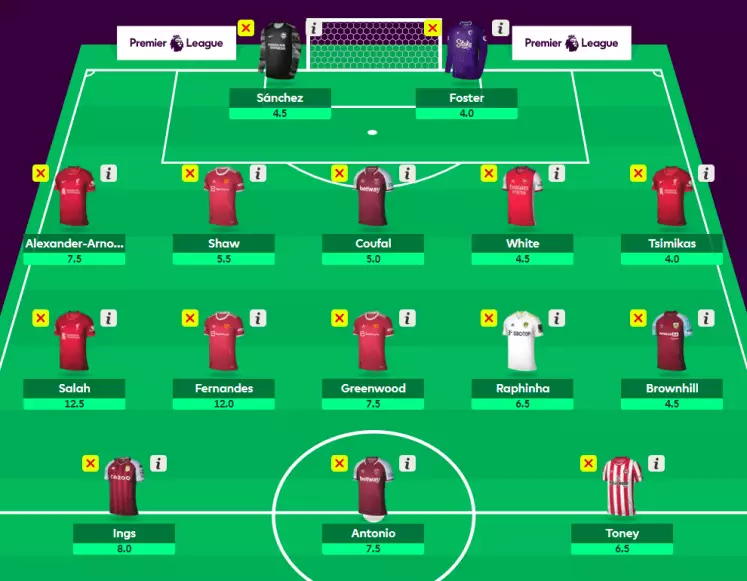
An Oxford University mathematician has explained how his subject could actually help you beat your friends and colleagues at fantasy football.
So, here we are at the first international break of a new season.
How have you started in fantasy football?
Did your leftfield punts on cheap players coming up from the Championship pay off, or are you looking at playing that wildcard after only a handful of game-weeks?
Well, however you're doing, there's something to be learned from integrating a maths-based approach into your play, according to Oxford University mathematician Joshua Bull.
In addition to his credentials as an Oxbridge boffin, he's also the current champion of the Premier League's official Fantasy Premier League, so he's definitely worth listening to.

We all know the rules - you get a budget of £100 million to spend on 15 players with no more than three players from each club.
Those players score performance-based points depending on how they get on throughout the season.
Captains and vice-captains earn more points.
Now, Joshua has released a video on YouTube in which he addresses some of the ways in which his mathematical brain helped him to victory.
He says that 'being a strategic thinker is definitely a benefit' and thinks that 'mathematical models are a great way of exploring more complex systems'.
Of course, they are if you're a genius. Most of us can't remember GCSE maths.
So, his advice for us mere mortals is thus.
Pick a few expensive players and stick with them, don't just ditch players after only one week, and make transfers based upon removing underperformers, rather than bringing in whoever had a stormer the previous week.
Simple enough, right?

He reckons that heading for five or six expensive players and then cheaper options is better than one or two big-hitters and a team of mid-rangers.
In terms of bench substitution, draft in players who are at home rather than away.
Formation, he says, doesn't matter.
When it comes to the captain, have a look at who they're playing, and whether they're at home or not.
On the Oxford University blog, he said: "You can apply the exact same logic to fantasy football. So, you've got all of this data out there and you want to know how making your team choice is going to impact on your points.
"That's the kind of thing that you can quite happily model mathematically. These are the things I was thinking about, even if I wasn't writing down equations.
"Some people actually are writing algorithms for fantasy football though, with some being more successful than others."

He added: "All the teams play once and then you can make transfers. You can only make one or two changes per week. If you want to make any more than that, it starts costing you points - you have to pay a forfeit.
"So, there's a real optimisation problem where there are players you might want to bring in, but it's not necessarily easy to say, 'I want them in my team, so I'll get them in my team.'"
There you have it - if you're mathematically-minded, you can give yourself an edge over your opponents and a chance to claim those all-important post-season bragging rights.
Featured Image Credit: Fantasy Premier LeagueTopics: Science, SPORT, Maths, UK News, Football, Premier League, Interesting